Moshe Yudkowsky, in his eTel talk, used a wonderful quote from Agatha Christie, who apparently once said:
I never expected to be so poor that I couldn’t afford a servant, or so rich that I could afford a motor car.
Moshe Yudkowsky, in his eTel talk, used a wonderful quote from Agatha Christie, who apparently once said:
I never expected to be so poor that I couldn’t afford a servant, or so rich that I could afford a motor car.
Visiting a friend’s house last night, I discovered a level of gadgetry to which even I had not previously aspired. It’s the latest thing from those dashed clever Japanese chaps, apparently.
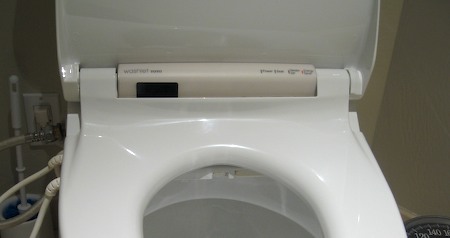

I’m sorry the image is a little blurred. I can assure you I was neither oscillating nor pulsating at the time.
I didn’t try it out, actually. I rather regret it now. Not sure when I’ll get another chance and it would at least be an interesting experience, I imagine!
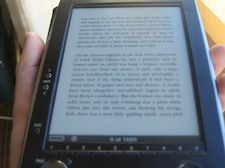 Yesterday, finding myself in Palo Alto, I took advantage of the current UK/US exchange rates to buy myself a new toy in Fry’s.
Yesterday, finding myself in Palo Alto, I took advantage of the current UK/US exchange rates to buy myself a new toy in Fry’s.
It’s the Sony PRS – the Portable Reader System – which is a bit like a giant read-only PalmPilot that uses the new e-Paper type display. It’s designed to be a replacement for a paperback – a way of viewing eBooks, and unlike some earlier devices, it’s not limited to DRM-encoded books downloaded from the manufacturer. You can put text files, RTF files, PDF files on it as well, and they look gorgeous.
However, there was a big question-mark over my purchase, which was that there is no official Mac or Linux support for this device. You can use a card reader to plug an SD card into your Mac, copy the files onto it and then plug it into the PRS, but that’s hardly convenient, especially in comparison to the (optional) USB docking station. Sadly, the PRS doesn’t just appear as a USB storage device. You can run the Sony software just fine under Windows using Parallels, but that’s yucky too.
Fortunately, Kovid Goyal came to my rescue with a system called librs500. He’s reverse-engineered the Sony protocols and created a Python-based library and utilities that can transfer files to and from the PRS. Sony owe him some money – the profit from my purchase, at the very least! You need to install a few bits, like Python 2.5, to use libprs500 – the easiest way is probably to use MacPorts. Once you’ve got libprs500 installed, though, you can start to do fun things.
I wanted a way to take an arbitrary document on my Mac and make it available as a PDF on my PRS. Here, in a nutshell, is how to do it:
There you are! Now you too can read Status-Q on a Sony Reader!
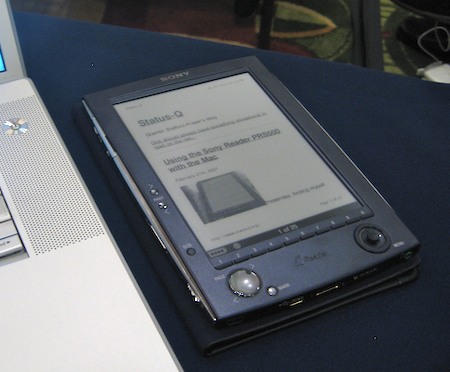
I’ll be in San Francisco next week giving a talk about Ndiyo at the O’Reilly eTel Conference. Should be fun. I greatly enjoyed eTel last year…
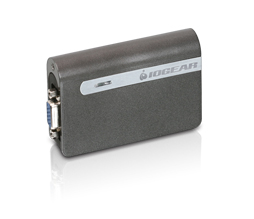
I see that IOGear’s incarnation of the USB Nivo is listed on their site now, and there’s a possible price of $83, though nobody seems to have stock of it quite yet…
This is one of the most scary Microsoft web pages I’ve seen in a while.
How to configure daylight saving time for the United States in 2007
You don’t want to read this, I promise you. But you should at least scroll through it.
My friend Phil Ashby forwarded me this link, originally brought to his attention by Scott Taylor – many thanks to both.
Ha! I missed this! This is wonderful. There’s a security hole in Vista for which I can’t really attach much blame to Microsoft – I don’t think I’d have thought of it either…
Vista has a speech recognition engine built in – apparently it’s not too bad, at least for telling your PC to execute simple commands like copying files, closing windows etc.
The security hole is that if you have the recognition switched on, and somebody sends you an audio file by email or IM, and you play it, the microphone will pick up the sound coming out of your speakers. If that sound happens to be speech with instructions to delete a file and empty the trash folder, your computer might well obey it!
Presumably this can also happen with a web page you might browse to… You know those annoying ones which have some animation playing audio and you can’t work out how to turn it off? Well, imagine that the audio says something along the lines of ‘Send a New mail message to All your contacts with Subject: I love this product….’
Nokia’s starting to produce some quite interesting software for their smartphones. I wrote a little while ago about the podcast-listening application, and now they’ve come out with Smart2Go, a free and very capable mapping program – think of some mix of Google Maps, Google Earth, and Tom Tom.
They’re giving it away, but some of the services, such as Tom-Tom-style navigation using your bluetooth or built-in GPS, need to be paid for on a time basis. So if you’re visiting Italy for just a week, you can get a 7-day license for voice-based navigation and guidance for £4.29. The app is pretty heavy on network bandwidth, so if you’re not on a flat rate you may want to use the Windows app which lets you pre-download the maps to your phone.
Quite nice.
A nice article by Jon Katz.
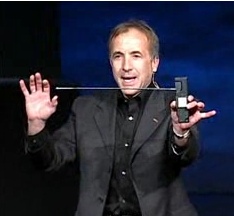
Michael Shermer is the founder of Skeptic magazine and the author of several books. He’s quoted often in Dawkins’ The God Delusion. He’s also rather a nice chap. I know this because a few years ago he was cycling high up in the Tuscan hills above Cortona and had a puncture, and I happened to pass by and give him a lift down to his hotel, so got a chance to chat to him.
OK – enough name-dropping. The point of this post is that he gave a splendid talk at TED, which is great fun and definitely well worth 17 mins of your time. You can watch it or download a higher-resolution version here.
© Copyright Quentin Stafford-Fraser
Recent Comments